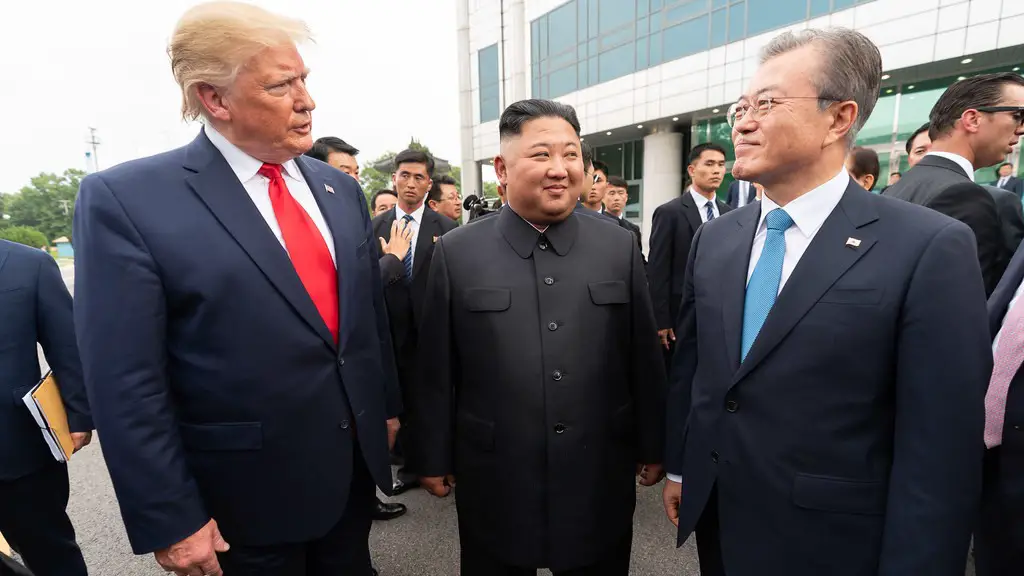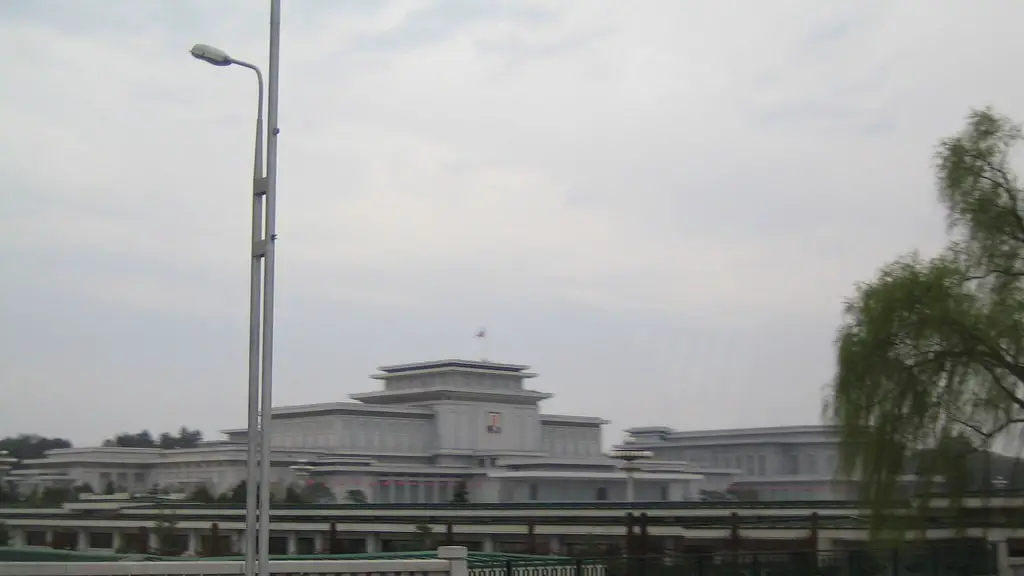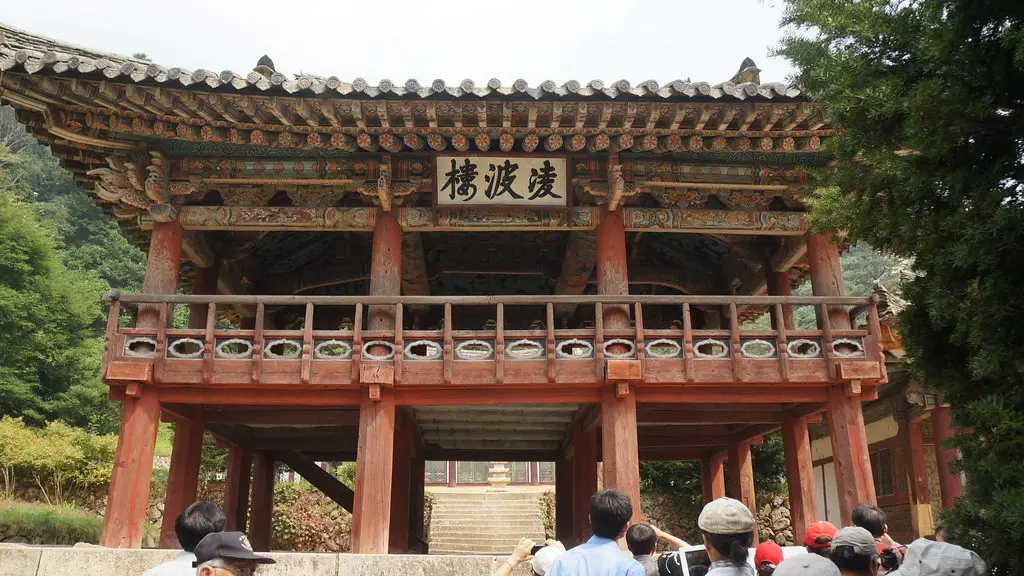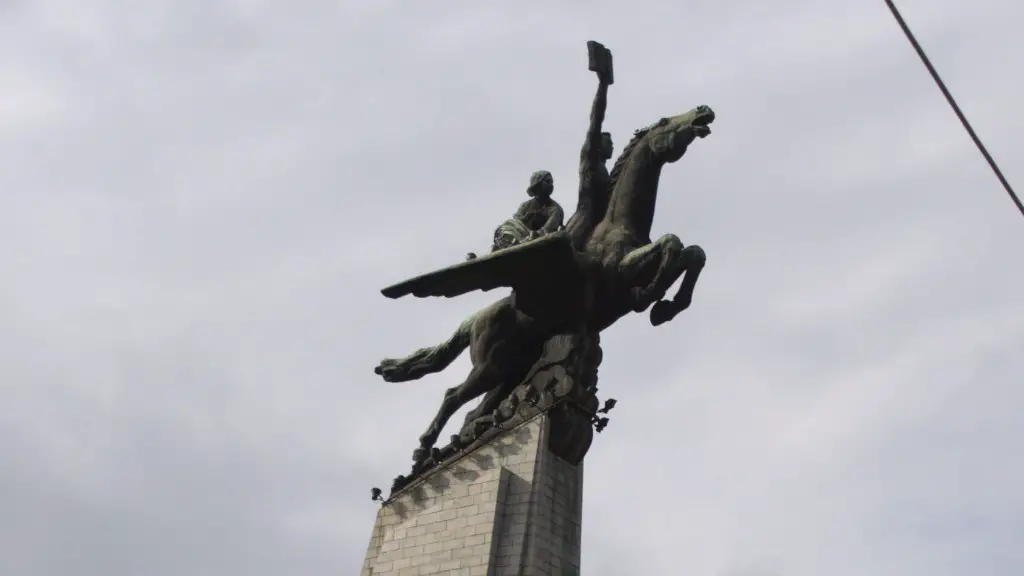Introduction
North Korea possesses a well-documented nuclear weapons program and is believed to possess a significant number of nuclear weapons. North Korea’s nuclear capabilities have been a source of tension in the Korean peninsula for decades. North Korea’s nuclear arsenal is believed to include a number of types of nuclear weapons, including Intercontinental Ballistic Missiles (ICBMs), medium-range ballistic missiles, and short-range ballistic missiles. This article will examine the types of nuclear weapons North Korea possesses, as well as the international implications of its nuclear capabilities.
North Korea’s Nuclear Program
North Korea has been developing a nuclear weapons program since the early 1960s. The program has progressed steadily since then, resulting in multiple underground nuclear tests, the launch of three satellites, the development of multiple missile programs, and the successful development of intercontinental ballistic missiles (ICBMs) capable of reaching the United States. North Korea also possesses a number of other missile systems, including medium-range ballistic missiles and short-range ballistic missiles.
North Korea has also undertaken an extensive program of nuclear research and development, including the development of enriched uranium for nuclear weapons. Notably, North Korea has tested several powerful thermonuclear bombs and has claimed to have achieved thermonuclear weapons capability. This has been cited as further evidence of the country’s nuclear weapons capabilities and the potential for future escalation of those capabilities.
International Implications
North Korea’s nuclear program has presented a host of challenges to the international community. Not only is the proliferation of nuclear weapons a source of concern, but it has been argued that North Korea also presents a nuclear threat to other countries in the region. This increases the risk of conflict and the potential for widespread devastation should a conflict arise.
The development of nuclear weapons by North Korea has also increased regional tensions, particularly between the US and North Korea. In recent years, the US has taken an increasingly hawkish stance towards North Korea and has imposed a series of economic sanctions in an attempt to curtail North Korea’s nuclear activities. In response, North Korea has shown no signs of halting its nuclear program, with the country continuing to make progress in its development of nuclear weapons.
The potential for escalation of tensions between the US and North Korea is one of the major concerns for the international community with regards to the North Korean nuclear program. The US has threatened to use military force in the event that North Korea does not cease its nuclear activities, putting the region on the brink of war.
Experts’ Views
International security experts have expressed varying views on the North Korean nuclear program. Some argue that the proliferation of nuclear weapons is a direct risk to global security and stability, while others believe that the US should take a diplomatic approach to resolving the conflict.
Experts have also suggested that the US should take a more proactive role in addressing the proliferation of nuclear weapons in North Korea, through the use of economic sanctions, and promoting international dialogue aimed at resolving the dispute.
Meanwhile, others have argued that North Korea’s nuclear capabilities should be addressed through a multinational effort, with cooperation between the US and other countries in the region.
Analysis and Insights
North Korea’s nuclear capabilities have been a source of tension on the Korean peninsula for decades. North Korea has developed an extensive nuclear weapons program, with the country making significant progress in the development of nuclear weapons, including the development of Intercontinental Ballistic Missiles (ICBMs) capable of reaching the United States. This has posed a great deal of anxiety to the international community, particularly in regards to the threat of nuclear escalation between the US and North Korea.
International security experts have suggested that the best approach to the situation is a multifaceted one, combining economic sanctions with the promotion of diplomatic dialogue. Despite the potential for further escalation of tensions, the international community must take a measured approach and work together to resolve the situation and secure peace in the Korean Peninsula.
Weapons Grade Nuclear Warheads
North Korea is believed to possess a significant number of nuclear warheads. While the exact number is unknown, estimates range from 10 to 20. It is believed that North Korea may possess weapons grade uranium and plutonium for use in nuclear weapons.
North Korea is thought to possess a variety of nuclear weapons, including air-delivered bombs, submarine-launched missiles, and intercontinental ballistic missiles. Reports have also suggested that North Korea has developed a hydrogen bomb, which, if true, would put it in direct competition with other great powers in the region.
The international community remains deeply concerned about the threat posed by North Korea’s nuclear capabilities. The effectiveness of international sanctions is unclear, but they seem to be having an effect, as North Korea has recently agreed to participate in negotiations with the US and other regional powers.
The Cost of Nuclear Proliferation
The proliferation of nuclear weapons in North Korea has come at a high cost to the country. North Korea has had to devote a substantial portion of its resources towards maintaining its nuclear program, hindering its ability to invest in more productive uses of its resources. The country is also dependent on imports for essential goods, as its economy is ill-equipped to meet its own domestic needs.
Furthermore, North Korea’s nuclear program has posed a significant threat to the security of the region and the world. The risk of war and the potential use of nuclear weapons have presented a grave danger to the region and beyond. The cost of proliferation has also had a devastating effect on the region’s diplomatic and economic climate, as countries have sought to isolate North Korea in an attempt to contain its nuclear ambitions.
North Korea’s nuclear program has also had a significant impact on international relations. US-led efforts to contain North Korea’s nuclear program have been met with resistance by other countries in the region, with some arguing that military intervention is not the answer to resolving the crisis. This has prompted the US to pursue more diplomatic solutions to the issue, further complicating the situation.
Conclusion
North Korea has been developing a nuclear weapons program for decades. The program has progressed steadily, resulting in multiple underground nuclear tests, the launch of three satellites, the development of multiple missile programs, and the successful development of intercontinental ballistic missiles (ICBMs) capable of reaching the United States. North Korea is believed to possess a large arsenal of nuclear weapons, including air-delivered bombs, submarine-launched missiles, and intercontinental ballistic missiles.
The proliferation of nuclear weapons in North Korea has come at a high cost to the country and the international community, impacting regional diplomatic and economic relations. International security experts have suggested that the best approach to the situation is a multifaceted one, combining economic sanctions with the promotion of diplomatic dialogue. Despite the potential for further escalation of tensions, the international community must take an active role in working together to resolve the situation and secure peace in the Korean Peninsula.




